
12 minute read
Organisational Overview
WHO WE ARE
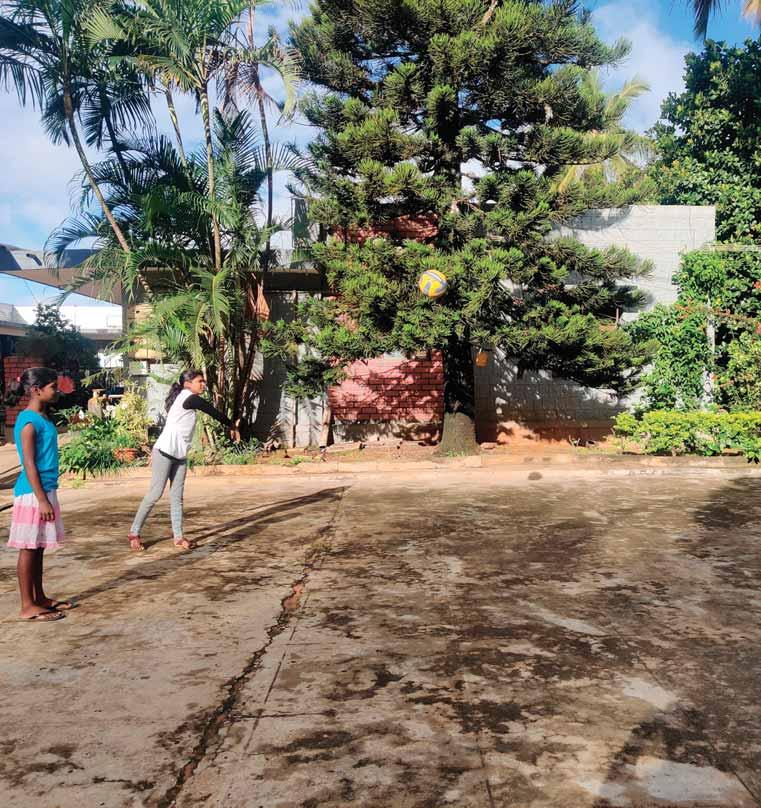
Advertisement
Children and child sponsorship is part of our DNA. We have always believed that all children and young people have a right to grow, learn and play in a safe
and nurturing environment.
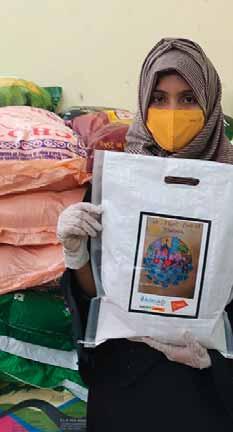

They also have a right to receive adequate care and protection from all forms of exploitation, neglect or abuse. At Asian Aid, ‘It’s all about the kids’ because the Bible says children are important to the Kingdom of Heaven and should be valued. Our Vision
All children and their communities are empowered, protected and have full access to their rights. Our Mission
Asian Aid gives hope by fostering permanent positive change in the lives of disadvantaged children and their communities. Our Values
At Asian Aid, we: Believe in Jesus: in His love for others, in His compassion for the poor and in His example of giving. Believe in people: helping all who need it regardless of their religion, ethnicity, culture or gender, and empowering the poor. Believe in the rights of the most vulnerable: such as children and women. Believe in good stewardship: being transparent, accountable, honest and cost-effective in all our dealings. Believe in accountability and professionalism: being responsible to God, to the people we help, to our supporters, to the Australian Government and to the Seventh-day Adventist Church. Believe in service: opposing poverty and social injustice, condemning all that impoverishes children and denies their potential, and committing to sharing resources with the poor.
Looking back 2020-2021
Number of students sponsored: DCS: 305 CFD: 314 Number of schools: 9
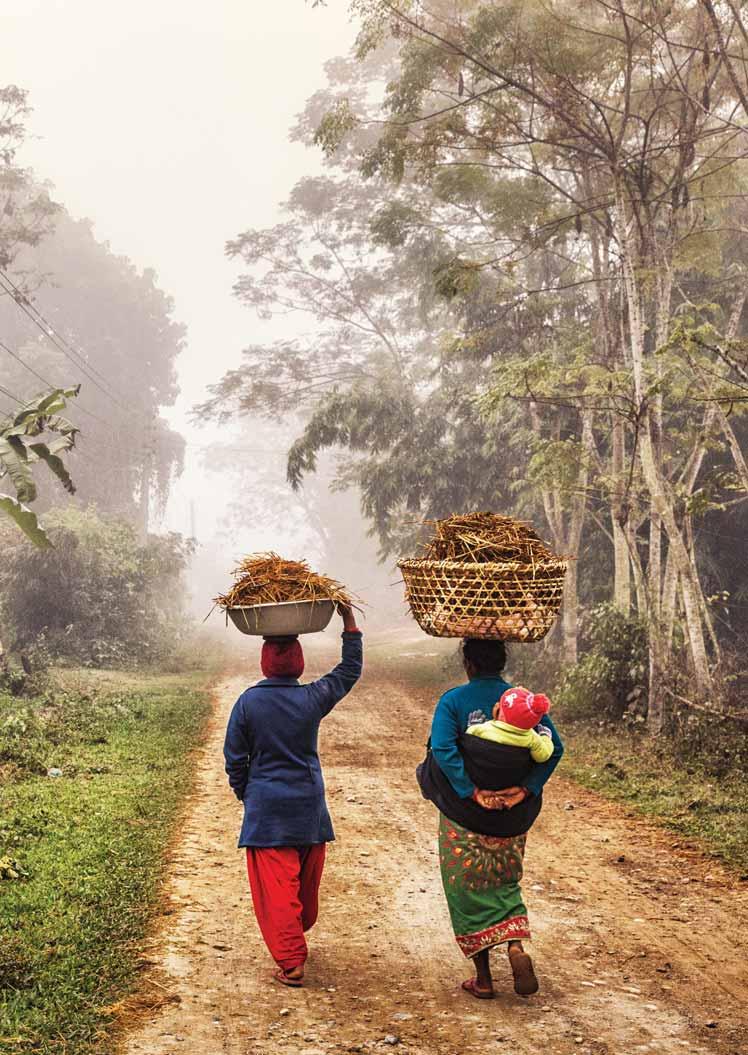
Number of CFD and CFSD Projects: 1 Number of families who received food relief: 910

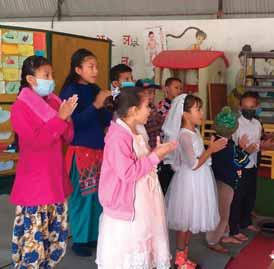

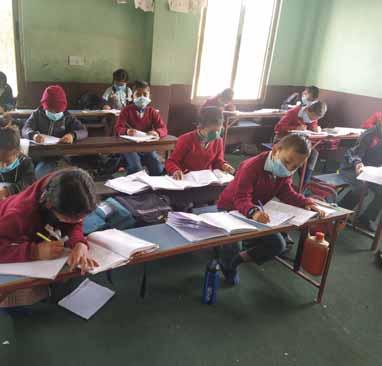
Providing support for vulnerable students and their families both in urban as well as rural areas has been more critical than ever.
Throughout 2020 due to extended lockdowns and restrictions on movements, our partner staff in Nepal contacted students for welfare checks by phone, and when it was safe to do so, by direct home visits. Home visits, conducted by Adventist teaching staff, Child Activists Facilitators (CAFs) and Model Couple Campaigners (MCCs), included providing counselling and raising awareness about safe hygiene practices during COVID-19. Our Partners, in coordination with remote government health agencies, provided essential food packages and cash relief payments to ensure children and their families had access to basic supplies during lockdown. Our Partners continued working with local governments to form Child Rights Protection Committees in project areas. These committees work to protect children from exploitation, prevent child marriage and ensure children have
access to learning opportunities. We further mobilized leaders in the community to talk about reproductive health rights including the dangers of chhaupadi (menstrual huts) and child marriage. As a result of these key infl uencers, some of the families abandoned chhaupadi huts and the adolescents and women impacted returned to their houses again. Despite the As part of our ‘Return to sudden impact Learning’ campaign, our schools of COVID-19, we in Nepal used the COVID-19 along with our lockdown period to expand Partners in Nepal and renovate so that children were able to make the most of the could return to a better learning circumstances and environment. Construction of improve learning additional classrooms, extension environments for of common areas like the library, the children. and fresh paint brightened up the schools. In addition, some of our children’s homes were upgraded to better accommodate the growing needs of adolescent students. Despite the sudden impact of COVID-19, we along with our Partners in Nepal were able to make the most of the circumstances and improve learning environments for the children.
story of change 2021
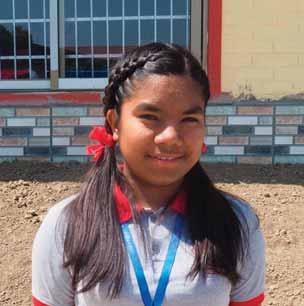


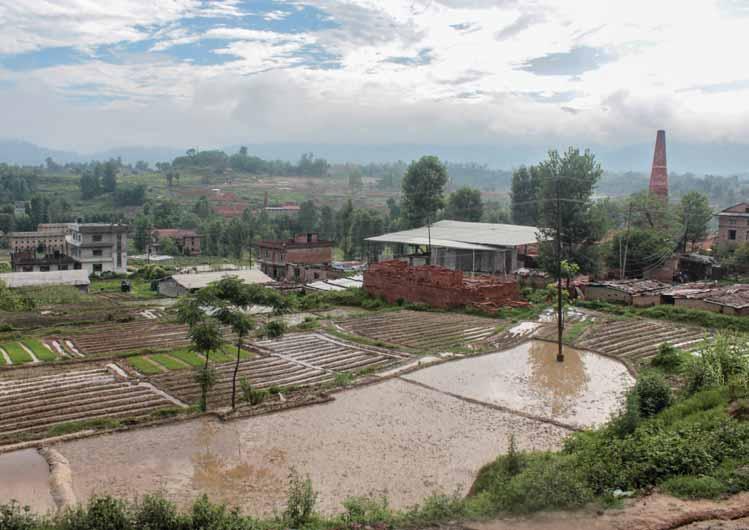
Diya 15, Nepal
We first met 15-year-old Diya We first met 15 year old in Scheer Memorial Hospital when she was being treated for a very serious case of meningitis.
After she recovered, she was brought under our care.
In the beginning it was diffi cult for Diya to cope with her studies. Thanks to her hard work and determination, Diya is now fi rst in her class. Indeed, Diya's life has totally changed since she joined the school.
In her village her family struggled to live peacefully with neighbours because they came from what is considered a lower caste. In school she is treated as an equal by her friends and is able to live happily and healthily. She is safe and well. Her mother, who is mentally ill, is unable to take care of her.
Diya stayed in the school during the lockdown, attending online classes from her boarding house facilitated by the Adventist school staff. One of her teachers said, “We do not know how her life would have turned out if she had stayed in her village.”
Diya dreams of becoming a teacher. With her positive attitude and determination to improve,
Diya is well on her way to achieving her dreams and becoming a future leader.

Looking back 2020-2021 INDIA

Number of students sponsored: DCS: 1597 CFD: 396 Number of schools: 68
Number of CFD and CFSD Projects: 3 Number of families who received food relief: 1924

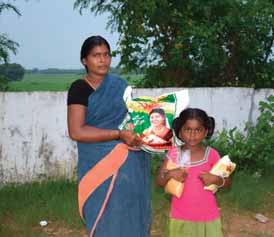

India 2021
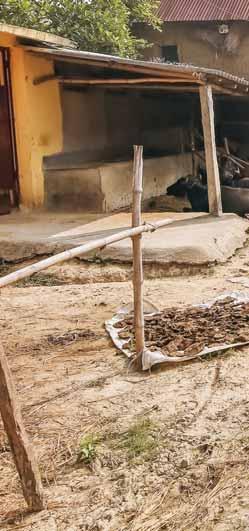
Just like in Nepal, financial and food relief was central to our work in India this year. Whilst it was challenging at times, we along with our Partners in India were able to refocus program activities on responding to emergency needs.
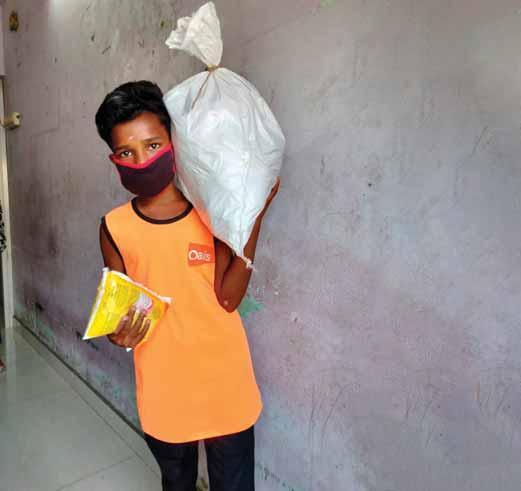
In some Adventist village school communities the school classrooms were used as distribution points for relief supplies to students and families. Our after school tuition programs, in addition to working as relief collection points, allowed opportunities for children and their families to connect with teaching staff and provided much needed social support and educational continuity. Students were kept engaged through poster competitions, craft activities and learning worksheets that were able to be completed from home. We saw signifi cant achievements from the efforts of our Partners as they thought of new ways to deliver program outcomes. Women from our tailoring programs used skills learnt to sew face masks and distribute them throughout their local community. New initiatives such as these, delivered by our Partners, provided opportunities and positive change in the lives of children and adults across our programs.
The wellbeing of students across the country was monitored through welfare checks, conducted primarily via phone calls. Welfare checks included questions on the family’s ability to return to work, the physical and mental health of household members, and the child’s access to online and hard-copy learning resources. In many cases our Partner staff kept in touch with students and their families through social media platforms, like WhatsApp, posting regular updates on COVID-19, changing government restrictions and recommended hygiene practices. Students and their families were provided information on measures like sanitizing, wearing masks and maintaining social distance. In our Adventist village school communities teaching staff, where possible, conducted home visits with students and their families to ensure the family’s wellbeing, and to provide hardcopy learning resources and feedback on assignments. In the height of the lockdowns, Adventist schools delivered learning materials through online platforms such as WhatsApp and Zoom. And when allowed to do so, schools commenced face-to-face learning through staggered class sessions with agreed COVID-Safe management plans in place.
Abdul 12, India
Children like 12-year-old Abdul and Children like 12-year-old Abdul and his family were grateful for the help they received during the lockdown. His widowed mother usually works as a housekeeper in several

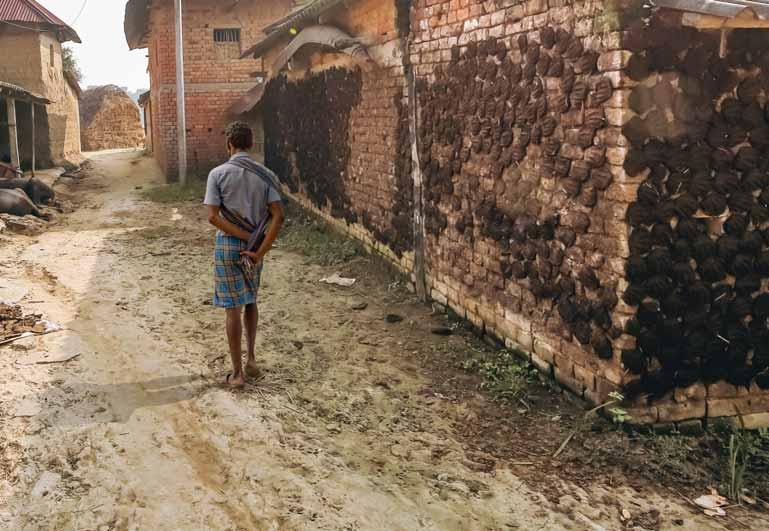


houses to support her two children, however due to COVID-19 she was unable to work.
story of change 2021 st
Our sponsorship has meant that her children continued studying whilst the food relief packages ensured they did not go hungry for those t her months. During the lockdown, Abdul was careful in following all the preventive steps to stop the spread of COVID-19. He spent his time playing indoor games with his brother and neighbour, as well as attending online classes. Abdul feels he is blessed to be able to study and has learnt a lot from his teachers. Now his ambition is to be a doctor and serve the sick. This dream keeps him motivated to do his best. With the right guidance and nurturing, Adbul has gained the confi dence that he has a bright future ahead. Abdul says, “I have gained good command of English, am learning to be responsible in fi nishing my homework and study without anyone reminding me. I have learnt to be punctual, hygienic and neat. All of these things will help me in the future.”
Looking back 2020-2021 BANGLADESH
Number of students sponsored: DCS: 896 CFD: 116 Number of schools: 39
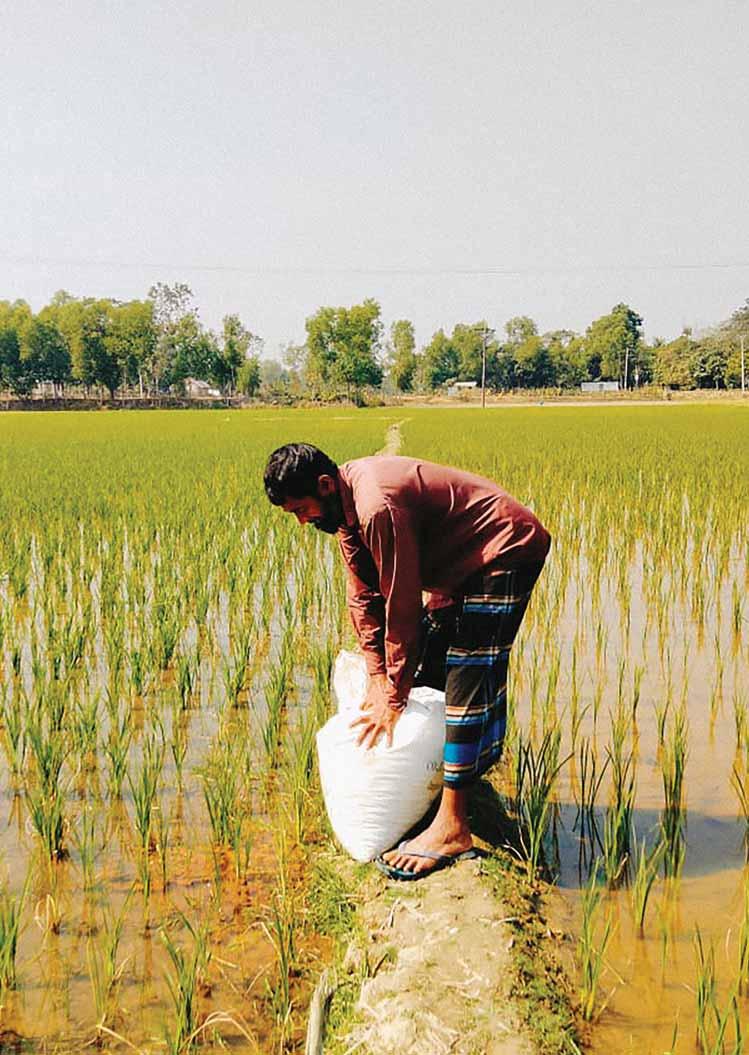
Number of CFD and CFSD Projects: 2 Number of families who received food relief: 2243


story of change 2021 BANGLADESH
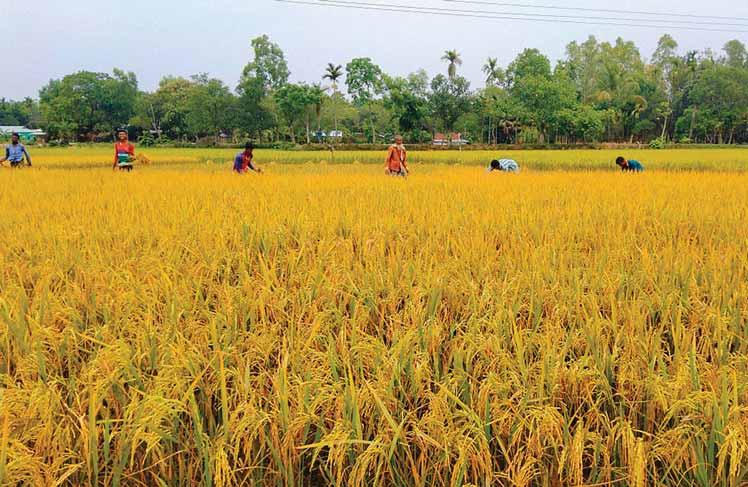
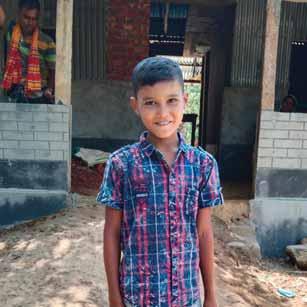

Rifat 10, Bangladesh

In rural Bangladesh, In rural Bangladesh, Rifat Rifat was very excited to tell us how our WHED
project was impacting his family and community.
His family engages in farming and runs a small shop but these still do not provide enough income for the family. Our irrigation system has created a huge opportunity for them and their community to grow crops year-round rather than having to wait for seasonal rain resulting in more than one paddy season. They have also been able to grow a range of new vegetables which sell better in the market including potatoes, egg plants and other winter vegetables. Education and training have also been a big part of the WHED project with farmers being taught new skills and undergoing workshops.
Training sessions have been conducted for local women to teach skills that generate a domestic income. Women and girls have also attended several seminars teaching them of their rights, to be aware of social issues and how to protect their community.
Rifat’s family said they are honored and privileged to be part of the WHED project and are thankful to you, the donors, for providing that opportunity.


BANGLADESH

An enormous challenge faced by our Partner in Bangladesh was the desperate need faced by many families and communities for food relief.
The majority of the people involved in our programs work as day labourers, so with strict lockdowns in place they were unable to access work and were therefore unable to provide food for their families. With your support our Partner was able to secure regular food supplies and safe distribution channels. Food packages provided much needed relief for struggling families. Our Partner also successfully completed fi nancial relief transfers to those students who were too remotely located to collect food packages. Students and their families were able to use these fi nances to purchase food and supplies in their local communities. To pull through periods of signifi cant scarcity, our Adventist village schools used support
raised through the 'Family Food Fund' to feed additional families surrounding the Village Schools, creating trust and further exemplifying the values and mission of the schools. Besides food relief, we also Students and their managed to recommence and complete several building families were projects in our schools. This able to use these finances to purchase food and supplies in their local communities.
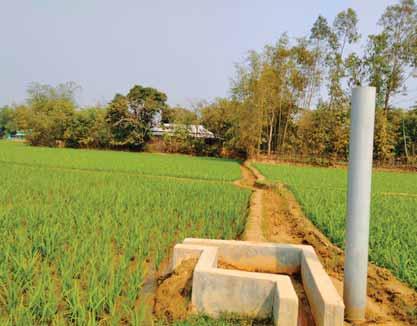
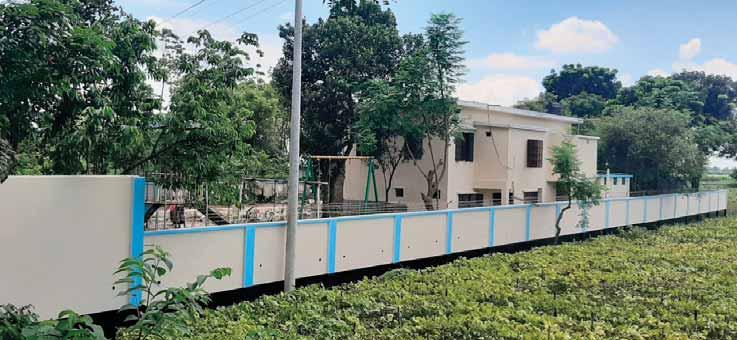
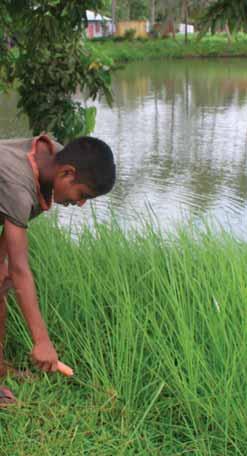
included improvements to the Maisie Fook School involving the completion of a new security wall, electrical upgrades and the construction of a new playground, and Kellogg Memorial Centennial renovations of the church and boarding facilities. When students were able to physically return to school they were very excited to see the signifi cant improvements that had been made. Despite the challenges of lockdown, Phase Two of the WHED Project continued to grow and deliver fantastic outcomes. Having access to a reliable water supply has made an incredible difference for the school and the surrounding community. The school principal reported that due to the new irrigation system, the school harvested over 2,500 kilograms of potatoes, which served 500 children for three months in the school cafeteria. As lockdowns lifted,
Joy is good at cutting the grass When students were able to physically our Partner has held classes return to school for farmers to learn how they were very to diversify their crops and excited to see effectively use the irrigation the significant system created for them. Local improvements that had been made. farmers have been able to earn additional income by selling their crops, leading to greater food security. As we work towards the goal of sustainable outcomes, this project is a shining example of how, together with your support, we can make a difference to the lives of not just one child but to the lives of many children and the community as a whole.




